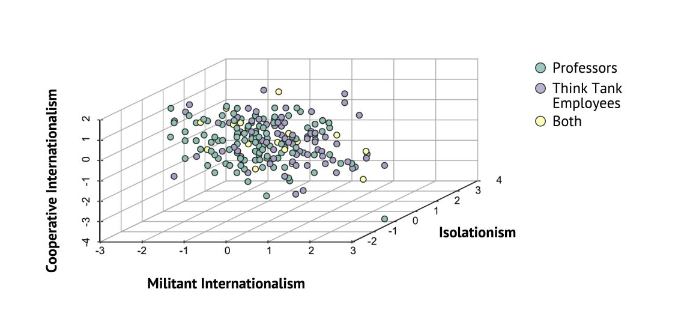Washington’s foreign policy circle is a famously tight network. Comprising government officials, academics, and think tanks, this group (known as the ‘Blob‘) has developed a reputation for hawkishness and support for high levels of military spending.
There are hundreds of think tanks based in Washington, making it difficult to tell where the policy comes from: the White House or unelected officials. During the Reagan era, for example, there were almost 200 employees at conservative think tanks who served as government officials or consultants for his administration. But what do they actually believe?
New research by Richard Hanania and Max Abrahms has found that think tanks are much more hawkish than International Relations scholars, even controlling for ideology.
Taking a comprehensive survey of the most influential scholars and top 20 think tanks, the two researchers discovered that the closer a think tank employee was to power (both geographically and professionally), the more likely they were to be militarily interventionist. According to Hanania and Abrahms, for all the think tanks located within three miles of Capitol Hill, every mile further away is associated with a -0.48 deviation in militant internationalism:

The researchers posit that the reason for this is the increased likelihood of socialisation with government officials:
So why is the foreign policy community more hawkish generally? Hanania and Abrahms give three answers: self-selection, institution-selection and knowledge-based:
The Ukraine war has been something of a renaissance for the Blob. But this research should serve as an important reminder to Washington foreign policy officials that not everyone thinks alike — even if all think tank employees do.











Join the discussion
Join like minded readers that support our journalism by becoming a paid subscriber
To join the discussion in the comments, become a paid subscriber.
Join like minded readers that support our journalism, read unlimited articles and enjoy other subscriber-only benefits.
Subscribe